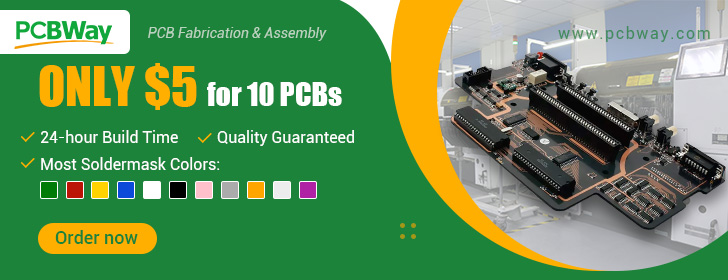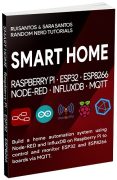In this post, I will share with you a list of 9 home automation open-source platforms for your projects.
Home automation can include the scheduling and automatic operation of lighting, heating, air conditioning, window blinds, security systems and more.
Home automation may also allow vital home functions to be controlled remotely from anywhere in the world using any device with a browser that has an Internet connection.
The following list includes just a sample of some of the most popular home automation platforms.
1. OpenHAB
OpenHAB is a home automation platform whose main aim is the integration and interaction between different home automation technologies and devices.
Website: openhab.org

Main features:
- Vendor and technology agnostic
- Developed in java
- Runs on any device capable of running JVM
- Integration of different home automation technologies into one
- Comes with different web-based UIs
- Provides APIs for being integrated in other systems
2. PiDome
This home automation platform was exclusively developed for Raspberry Pi. It provides solutions for end users as well as for developers and hobbyists. Besides being a server, it also includes clients for multiple platforms.
Website: pidome.org

Main features:
- Suitable for technical and non technical users
- Runs multiple commands at the same time
- Dashboard for all client types
- MQTT broker with client functionalities
- Plugins for: utility measurements, universal remote controls, SMS, Media (XBMC) and weather data
- Automatic creation of data graphs
- Allows you to write your own client with java client libraries
3. Domoticz
This is a lightweight home automation system that allows to monitor and configure lights, switches, sensor and other devices. It also allows you to send notifications and alerts to any mobile device.
Website: domoticz.com

Main features:
- Compatible with all browsers
- Operates in several operating systems with a scalable HTML5 web front-end that adapts to desktop and mobile devices
- Runs on Raspberry Pi, Cubiedboard, Unix, Apple and Windows
4. Home assistant
This is a home automation platform running on Phyton 3. Home Assistant tracks and controls all devices at home.
Website: home-assistant.io

Main features:
- Quick and easy installation
- Mobile-friendly interface
- No need to store data in the cloud
- Set up of rules
- Integration with a wide variety of devices and services
5. Fhem
FHEM is a GPL’d perl server for home automation. It automates tasks like switching lamps, shutters, heating and so on. It also logs events like temperature, humidity and power consumption.
Website: fhem.de/fhem.html

Main features:
- Runs as a server
- Control via web or smartphone frontends, telnet or TCP/IP directly
- Supports several protocols
- Autocreating devices/logs when receiving data from a new device
- Log events to files or a database
- Notification of external programs or scripts when receives certain events
- Timed commands
- Several interfaces: simple text, JSON, XML, etc
6. MajorDoMo
MajorDoMo is an open-source home automation platform aimed to be used in multi-protocol and multi-services environment.
Website: majordomohome.com

Main features:
- Can be installed on almost any computer running Windows or Linux OS
- Easy installation
- Protocol support (MQTT, ZWave, 1-wire, ModBus, SNMP, Ethernet)
- Web-based interfaces for any device
- GPS-tracking
- Scripting with PHP and/or Blockly
- Set up automation rules and scripts
7. Mycontroller
Mycontroller is a home automation server that allows to monitor and control you home from anywhere.
Website: mycontroller.org

Main features:
- Very lightweight server
- Supports Linux, Windows and Raspberry Pi
- Supports multiple gateways with multiple protocols: Serial, Ethernet and MQTT
- Time based operations
- Notifications, alarms and graphical reports
- Interactive dashboards
8. Pimatic
Pimatic is a home automation framework that runs on node.js.
Website: pimatic.org

Main features:
- It is on its beta status
- Control of several devices
- Automation by rules
- Extensible by various pluggins
- Web-based
- Web interface is build using express and jQuery Mobile
9. Node-RED
Node-RED is a graphical tool for wiring together hardware devices, APIs and online services in new and interesting ways.
Website: nodered.org

Main features:
- Built on Node.js
- Visual tool for wiring the Internet of Things
- Browser-based flow editing
- Flows can be stored using JSON
- Event-processing engine
If you would like to know how to build your own home automation system with Node-RED, Raspberry Pi, ESP8266 and Arduino, I’ve just released a new course on this subject: Build an Home Automation System for $100.
I hope you’ve found this list useful.
Have you ever used one of these platforms? Let me know by leaving a comment below.
Thanks for reading,
Rui








Also check out this JavaScript system for the Pi at lowpowerlab.com/gateway
Thanks, that’s a great alternative too
Cool list! I have used ThingSpeak, Blynk, Parse-Server, Meshblu on my home server. I try OpenHab last year but I will give it another go. So many open-source IoT now in circulation but machine learning and Deep Learning are merging into IoT gradually for smart devices and autonomous systems (Adept)
Blynk should be definitely in the list! Thanks for sharing,
Rui
Great Post 🙂
Thanks Mark!
Olá! Estou escrevendo em português porque sou brasileiro e vi que você é de Portugal. Estou feliz em encontrar seu site, a muito tempo estou querendo montar meu sistema de Automação Residencial e me perco pesquisando qual plataforma usar, além disso o tempo que tenho para me dedicar é curto. Vou ver todo o seu material para decidir e aceito alguma sugestão que possa me facilitar a escolha. Parabéns pelo site!!
nice
I can’t find any date in the comments and in the article. Anyway the article should be extended with ioBroker Smarthome OpenSource system, that is written comletely in Javascript.
Hi.
This post takes a long time without being updated. It was published in 2016.
Thank you for your suggestion.
Regards,
Sara